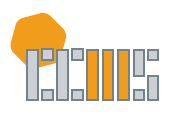Abstract / Synopsis
The term "genocide" emerged out of an effort to describe mass atrocities committed in the first half of the 20th century. Despite a convention of the United Nations outlawing genocide as a matter of international law, the problem persists. Some organizations (including the United Nations) are developing indicator frameworks and “early-warning” systems that leverage data science to produce risk assessments of countries where conflict is present. These tools raise questions about responsible data use, specifically regarding the data sources and social biases built into algorithms through their training data. This essay seeks to engage mathematicians in discussing these concerns.
DOI
10.5642/jhummath.DNFZ3077
Recommended Citation
Victor Piercey, "Responsible Data Science for Genocide Prevention," Journal of Humanistic Mathematics, Volume 13 Issue 2 (July 2023), pages 64-85. DOI: 10.5642/jhummath.DNFZ3077. Available at: https://scholarship.claremont.edu/jhm/vol13/iss2/6
Terms of Use & License Information
Included in
Data Science Commons, Mathematics Commons, Other International and Area Studies Commons, Social Justice Commons
